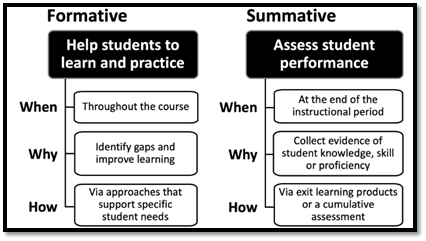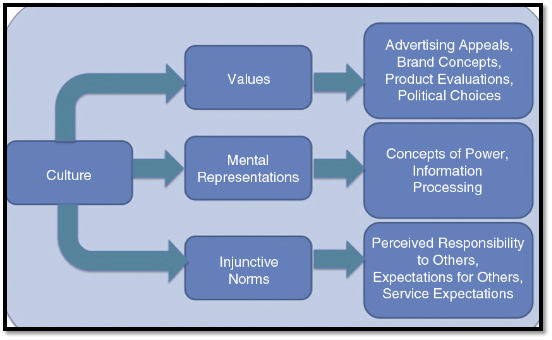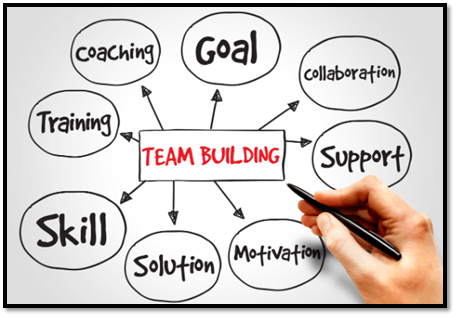Orientation For Success In Higher Education
Seeking assignment help online in the UK? Native Assignment Help is here to alleviate your academic burden. With our user-friendly platform and round-the-clock support, getting top-notch assignments has never been easier.
A) Reflection on learning
i. Significance of reflective learning
I have learnt that “orientation” is very important for the “students” to achieve successful results in their “Higher education”. As reflected by the study of Bassotet al.(2022), the main purpose of OSHE is to develop a wide range of skills in the University among students which are very effective and useful to make the institution more valuable. As stated by the views of Abidiet al.(2022), the primary goal of providing orientation sessions to the students of “higher education” is that the students can increase their capacity to absorb and retain information from the course’s materials. I taught that “academic skills” transfer the process that is needed to succeed in the environments of the academy including the capacity to read the complicacy on text which is communicating with the voice and writing for doing the research, evaluating the information and solve those problems.
ii. Description of “Kolb's reflective circle model”
After learning from class the benefit of reflection is helping to develop my skills of learning. I applied Kolb’s model of reflection to analyse the experiences of learning from module 1. There steps are following to evaluate my learning have offered me insights into the prices which will help me to develop my skills of learning in future.
- Concrete Learning: I realized that orientation is not limited to “higher education”; it also enforces a positive impact on their personal development such as “emotional intelligence”. I found that the students increase their capacity to absorb and avoid the data which enhances the rate and performance of the academy by obtaining the ability of academic excellence (Cottrell, 2019). I choose to increase the skills of the academy which enables students to be good at their writing which is difficult for the success of professionals.
- Reflective Observation: I think that this is the most important thing in “Business and Tourism Management” which may be “skills of research, Paraphrasing etcetera, skills of referencing, Time Management, Proofreading, Structure and Academic Tone, Planning, and Note Taking”. I think that the learners also get a scope to share their key issues and challenges during the orientation which has the potential to affect their marks in “Higher education”.
- Abstract Conceptualization: Orientation is also very important for students in order to address their weaknesses and improve their overall performance. As noted by the ideas of Legeret al.(2022), the students also need to attend the orientations to increase their knowledge and develop themselves as a professional for their career goals. I like to say that using skills helps to improve the skills of students including “paraphrasing skills, referencing skills, and research skills” (Hoodaet al. 2022). Those skills help to offer the aspect regarding these skills which improved by being involved with the course of education of “business and tourism management”.
- Active Experimentation: I would like to say that I would conduct module -2 with proper planning to make sure that the work is complete before the deadline. As a result, I will conduct the research of module -2 by planning beforehand. Besides that, I have learnt that I need to provide more specific logical arguments to support the information. I think that they can gather and analyse the materials which helps the people build the basis of the writing of the academy. During this study, I learned that the subject is the most important idea which helps to pursue the quality in business and tourism with increasing quality of capabilities (Bedford and Wilson, 2020). This increases the rate of work of the academy by calming and supporting the facts which I find in this research is credibility and arguments of writing.
iii. Approach of a reflection on “formative and summative”
The main purpose of a “Formative assessment” is to recognize the “learning process” of the students. As per the remarks of Legeret al.(2022), “Formative evaluation” can be explained as a process which involves various kinds of 'formal and informal” techniques and procedures. All information is recognised in this paper which assists in preventing errors. In my opinion, those skills and data in “business or tourism management”, refer the abilities is very complicated. As per the view of Evans (2019), this helps to support the students in improving the abilities of communication and demonstrate the honesty of the academy which presents the demonstration of expertise. Students get promised the success of a team in the academy and professional life by improving their abilities in refereeing.
In addition to this, the main purpose of a “Formative assessment” is to determine the most appropriate and suitable approach teaching to the students. As stated by the views of Dinget al.(2022), “summative assessment” is a process in which the entire learning of the students is determined through examinations or tests. It has been found from the study that there has been a significant increase in the adoption of “formative and summative evaluation” by the “Higher Educational institution” to help students achieve success in Higher Education.

Figure 1: “Formative and summative” evaluations
As a result, I have also checked the “comments and feedback” of the teachers of “module” to identify the key gaps and limitations of my work. Henceforth, I have been determined to address these key gaps and limitations in “module” and upcoming projects as well which would also help me to improve “my overall performance and scores”. As reviewed from the views of Williams al.(2017), “formative and summative evaluation” also allows the teachers to enhance the “capacity, potential and skill” of the students and create a development plan by implementing various techniques of techniques. I learned that students pursuer the qualification in “business management” that develops their many types of skills. They help the students to represent that the understanding of the business prevents errors and improves their abilities in work, increases the self-confidence of the academy and develops the materials of complicacy (Buhalis, 2020). Students prepare for success in business by being efficient at work.
On the other hand, I also think that the feedback from the teachers would help me to improve my get improved and better scores. Moreover, paraphrasing skills would also help to analyse the data more effectively which would also increase the transparency and authenticity of “module -2”. As per the reviews (Topping, 1998), some common examples of “formative evaluation” are “Exit tickets., Class projects Quizzes and KWL charts”.
iv. Summary
I think that Orientation can be considered as an effective technique or tool which has been widely adopted for improving the performance of the students in Higher Education. In addition to this, orientation is not only beneficial to Higher education, but, it also helps the students to gain confidence and adapt to the new learning. On the other hand, orientation also has been playing a huge role for the students as it increases overall efficiency and productivity. Besides that, Orientation is a technique which has kept me engaged with the assigned task, study and projects. Moreover, it has been found that orientations also helped the students to identify their “weaknesses and strengths”. In addition to this, “behavioural expectation” is also very important for the teachers to understand what and how the “cultural factors” have been influencing the performance, behaviour and learning patterns of the students.
B) Reflection on the cultural and behavioural expectations
i. “Cultural and behavioural expectations”
After the lessons, I learned the expectation of behaviours of studying for a degree in “business and management”. I understand the concept of culture and its impact on students the behaviour in culture and work is the most important for the presence of the skills of management of time, punctuality and passion about the skills of writing and the ability to work in a group. I have learnt from “Degree in business and management” that “Cultural expectations” have been considered as the messages which help humans and society to understand what can be accepted and what needs to be approved. As per the remarks of Bahramet al.(2022), the main purpose of “cultural; aspects” is to provide a path to society to make sure that all the individuals follow the same paths to meet their destinations.
I would like the lectures on “cultural and behavioural expectations” have helped me to gain knowledge about different cultures, their practices and customs. In addition to this, I have realized that the messages of cultures also have a significant influence on the “actions and behaviour patterns of individuals. As per the reviews of Martinet al.(2022), the messages that have been developed by the various cultures are deep-rooted in their subconscious minds, however, humans are often found to react or make a decision as per the predetermined traits and characteristics of “cultural expectations”.

Figure 2: Effects of culture on behavioural factors
I would like to say that the“Degree in business and management” has provided a broad scope on various expected behaviours in society at the “school, hospital playgrounds and hallways. For example, I have learnt that “good manners, learning, sharing knowledge and being respectful to the teachers” has been considered as some of the “behavioural “expectations which are found normally in a “classroom settings”. According to the thoughts of Cheng and Warren (2000)the “behavioural expectation” also has been referred to as presumed or determined behavioural patterns or actions which are expected from the teachers by the students. The views ofSchein(2010)“Cultural and behavioural expectations” allows the teachers to determine the “most appropriate and effective tool or technique of teaching to improve marks and performance of the students.I also think that "teamwork" is very important especially if everyone is assigned to a group project. In such situations, peers need to support each other so that everyone can collectively work for the best interests of the project or work.
ii. Implementation of these“Cultural and behavioural expectations”
I think that I would like to use the knowledge that I gained from the “Business and Management Degree” to develop strong relationships with the other students. As per the remarks ofHatch Schultz (2002), a communication gap often is created among different sections of society due to 'cultural differences” based on “age, gender, ethnicity, colour, origin and background”. As a result, I can adapt familiar traits or characteristics which are “cultural expectations” to develop strong relationships with the classmates as well the teachers (Topping, 1998). I practise the way I learnt the relations in expectation of behavioural and culture of restudying the degree in “business management” for securing that I am very prompt to the work and met in the tem of assignment and work which maintain the courtesy of professional to other employee in work.
iii. Key Resources
I think to implement the gained knowledge, I also need to read “books, and articles” about different cultures as the class has diverse students. Henceforth, I think that there is a requirement for “Academic support” to implement this effectively. On the other hand, I also need 'communication tools” to be able to interact and communicate with all the teachers and the students effectively (Cottrell, 2019). I required support from members of the team to help my work and skills “academic writing”. I am determined to expect other students to "behave and cation" based on their culture. I require working on my skills of paraphrasing and reversing. I require a book which helps to support the team. I was required to make a timetable for myself to enable what I taught in the classroom and meet the deadline of my assignments.
C) Reflection on Teamwork and peer-to-peer support
i. Significance of teamwork in Higher Education
The sessions of “peer-to-peer support and team working” have covered a wide range of key topics and subtopics which has stimulated the importance of “teamwork” and “collaboration” in a group for achieving successful project work. The views of Cottrell (2019) have also reflected that “Sharing of knowledge” has been referred to as the core aspect of learning which is not only limited to the workplace but also can be found in the classrooms (Bassot, 2020). After joining the class for the benefits of “peer-to-peer support” working with a team increased my experiences of learning and I understand that I learned from educators. However, I can learn from other students in the same course as me and work with other people at the same level that to explain the practices.

Figure 3: “Team Building”
Moreover, I also think that “fellow students” can help me with my studies or my modules if I face any issues. In the reviews of Dinget al.(2022), “Teamwork” has been identified as the collaborative efforts and activities of a group to meet common goals. On the other hand, “teamwork” also has been considered to be important to complete the “tasks and activities” most effectively and efficiently. I also need to develop other skills such as “communication, negotiation, responsibility, honesty, active listening, empathy, cooperation and awareness. On the other hand, "teamwork" is also important for sharing responsibilities. I think I also need to focus on developing a timeline to complete the project in my time.
Henceforth, I think that “fellow students” would also help me to increase my knowledge by sharing their experiences on various topics that I have less knowledge of. Also, I would able to able to learn about their “opinion, ideas, experiences, and views” on various aspects of a topic. The study of Tong et al.(2013), “peer-to-peer support” also has been considered as the key to overcoming major challenges as it allows to sharing of “creative and innovative ideas” to solve a problem. I learnt that “teambuilding” also helps to achieve “positive results”, however, 'communication” is also required for effective collaboration. The main objective of the research is the ability to study several materials to collect data (Novelli, 2022). I face problems while managing between work and commitments to an organization. I also learned that "teamwork" is most evident in groups where they share common "goals, interests, and objectives."
ii. Implementation of “peer-to-peer support and team working”
I would like to implement this knowledge while doing a “group project”. I would like to do a group assignment which would involve the peers as well. Besides that, I would also like involved and share the planning of the projects with other “fellow students” as well. Moreover, I would also like to make sure that there is an effective flow of communication between all the peers so that everyone can be “aware and informed” of the decisions. I practice the concept I learnt from the studies at work for participating effectively in activities of group for support that they require clarification on the topic of business with some ideas. Moreover, all the decisions of a “group project” also would be taken by taking into account the “ideas, views, knowledge, interests and opinions” of the peers. However, the main purpose of implementing this knowledge is that achieve the desired “goals and objectives” (Williams et al. 2017).
iii. Key Resources
“Communication tool”(CRM) is a key resource which would be required for developing an effective flow of communication. Moreover, Customer Relationship Management” (CRM) also has been considered an effective tool for “efficient and effective” “communication and collaboration”. To conduct “teamwork projects”, some workshops also need to be conducted so everyone can discuss the planning of doing it. As per the reviews of Isnanto and Tunas (2020) there has been a significant increase in the adoption of “communication tools” as well across the sectors for developing an effective flow of commands at the workplace. I have observed that communication is the key for “effective collaboration”. I think that the place needs some support from the educator and support from the academy to understand the topic for training and attending the session on building confidence, and activities of development. Understanding each other's culture will help me understand why some of my classmates are reacting or behaving in a certain way.
D) A SWOT Analysis
Strengths
I think that after completing the “Module”, I have developed “research, as well as referencing skills. However, these skills would also help me to improve the upcoming projects even more effectively. Referencing skills would play a huge role in determining the required sources of knowledge. In addition to this, it has been found that “research skills” are also very important to increase the retention of information and knowledge. A variety of "languages" must also be leaned on because each culture has different languages and practices (Sedgley, 2020). In addition, the main purpose of "peer to peer" support is to ensure that each person in a team or a group is providing their "edit".
Weaknesses
Communication is one of my weaknesses which has affected my relationships with my peers as well. Henceforth, I would like to address this weakness to improve communication. However, due to my communication skills, I have also faced issues sharing my concerns and challenges with the teachers that I faced while doing Module 1. Communication skill is also required for both personal and professional development. In addition to this, paraphrasing is another identified weakness. Paraphrasing has also impacted the performance of my previous projects as well. These communication tools also play a huge role in enhancing communication and collaboration between two individuals or groups.
Opportunities
I think that after gaining skills such as “ICT, writing, leadership and communication” skills, I would be able to generate several opportunities for the development of my career. Moreover, these would also help me to create “employment opportunities”. On the other hand, “Leadership skills” also have been considered to be very crucial in the workplace which would help me in promotion. ICT skills are also needed to create employment opportunities in the "tech sector" and as a result, these skills will help me give my best performance and get promoted. This skill will help me improve my knowledge and performance in higher education.
Threats
I think that “lack of finance” can be a major challenge to achieve the “desired goals”. I need a sufficient amount of funds to pursue the desired job role. As a result, I would be able to focus on my “core interest and skill” as I need to dedicate time to following my career goal. However, commitment towards an organization and work pressures would consume all my time which would eventually affect my mental health as well. As a result, I need to focus on "teamwork" so that I can effectively collaborate with everyone.
Reference List
Abidi, O., Nimer, K., Bani-Mustafa, A. and Toglaw, S., 2022. Relationship between faculty characteristics and their entrepreneurial orientation in higher education institutions in Kuwait.Journal of Innovation and Entrepreneurship,11(1), p.12.
Al-Tarawneh, S.S., Al-Sarayreh, A. and Alhowas, E.A., 2022. Impacts Of Strategic Audit To Improve Hr Strategies: Moderating Role Of Organizational Adaptation. An Empirical Study.Webology (ISSN: 1735-188X),19(2).
Bahrami, P., Kim, Y., Jaiswal, A., Patel, D., Aggrawal, S. and Magana, A.J., 2023. Information Technology Undergraduate Students’ Intercultural Value Orientations and Their Beliefs about the Influence of Such Orientations on Teamwork Interactions.Trends in Higher Education,2(2), pp.270-282.
Bassot, B. (2020). The Reflective Journal. 3rd edition. London: Bloomsbury Academic.
Bedford, D. and Wilson, E. (2020) Study Skills for Foundation Degrees. 3rd edn. Oxford: Routledge.
Buhalis, D. (2020) ‘Technology in tourism – from information communication technologies to Tourism and smart tourism towards ambient intelligence tourism: a perspective article’, Tourism Review, 75(1), pp. 267–272.
Cheng, W. and Warren, M. (2000). Making a difference: Using peers to assess individual student's contributions to a group project. Teaching in higher education (5)2, 243-255.
Cottrell, S. (2019) The Study Skills Handbook. 5th ed. Basingstoke, Palgrave.
Cottrell, S. (2019) The Study Skills Handbook. 5th edn. Basingstoke: Palgrave.
Ding, Z., Liu, M., Quan, L., Wang, H., Zhang, P. and Liu, W., 2023. How and when leader narcissism links to employees’ objective career success: The roles of ingratiation and careerist orientation.Frontiers in Psychology,13, p.8339.
Evans, N. (2019) Strategic Management for Tourism, Hospitality and Events. 3rd Edition. London: Routledge.
Hatch M. J., Schultz M. (2002). The dynamics of organizational identity. Human Relations, 55, 989-1018.
Hooda, M., Rana, C., Dahiya, O., Shet, J.P. and Singh, B.K., 2022. Integrating LA and EDM for improving students Success in higher Education using FCN algorithm.Mathematical Problems in Engineering,2022.
Isnanto, S.H. and Tunas, B., 2020. Deradicalization of Terrorism Prisoner: Evaluation of The Terrorism Client Guidance Program at the Surakarta Correctional Facility.IJHCM (International Journal of Human Capital Management),4(2), pp.96-113.
Leger, J.M., Ferris, C. and Nguyen, H.T., 2023. Preparing distance learning graduate students: Results of an innovative online orientation program.Science Talks,6, p.100167.
Martin, S.R., Emich, K.J., McClean, E.J. and Woodruff, C.T. (2022). Keeping Teams Together: How Ethical Leadership Moderates the Effects of Performance on Team Efficacy and Social Integration. Journal of Business Ethics 176 (1):127-139.
Novelli, M. (2022) Niche tourism in: Encyclopaedia of Tourism Management and Marketing. EdwardElgar Publishing, pp. 344-347. Available at: https://doi.org/10.4337/9781800377486.niche.tourism (Accessed:08February 2023)
Schein, E.H. (2010). Organizational culture and leadership, 4th edition, San Francisco: Jossey-Bass. Schultz, M. (2011). Relationships Between Culture and Institutions: New Interdependencies in a Global World?', Journal of Management Inquiry, no. 21, December, pp. 102 - 107.
Sedgley, M. (2020) Skills for Business and Management. 1st edn. London: Red Globe Press.
Tong, C., Wah Tak, W.I. and Wong, A. (2013) 'The Impact of Knowledge Sharing on the Relationship between Organizational Culture and Job Satisfaction: The Perception of Information Communication and Technology (ICT) Practitioners in Hong Kong', International Journal of Human Resource Studies, vol. 3.
Topping, K.P. (1998). Peer assessment between students in colleges and universities. Review of Educational Research, (68)3, 249–276.
Williams, K., Woolliams, M., and Spiro, J. (2017). Pocket Study Skills: Reflective Writing. 3rd edition. Bloomsbury Publishing PLC.



